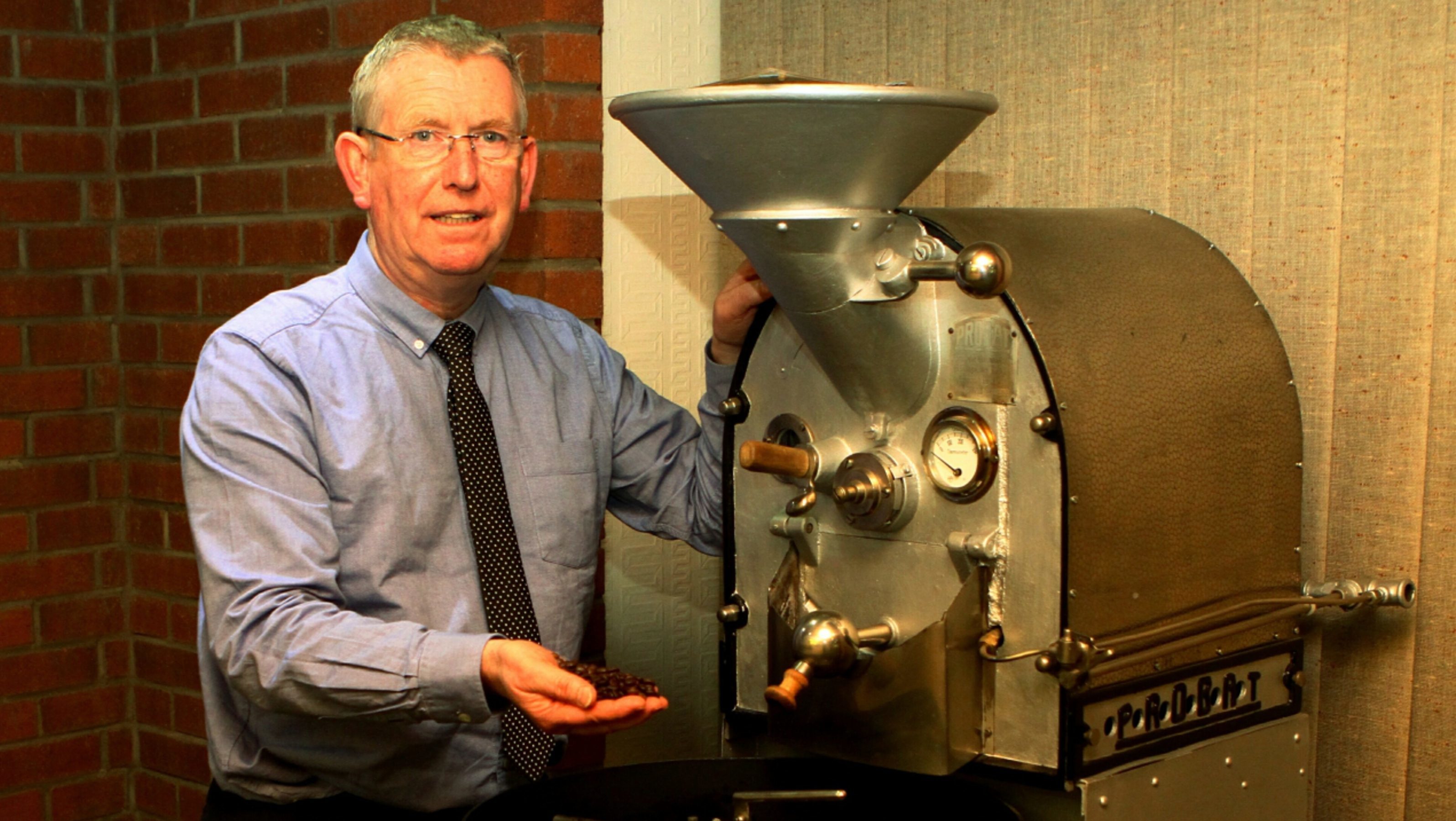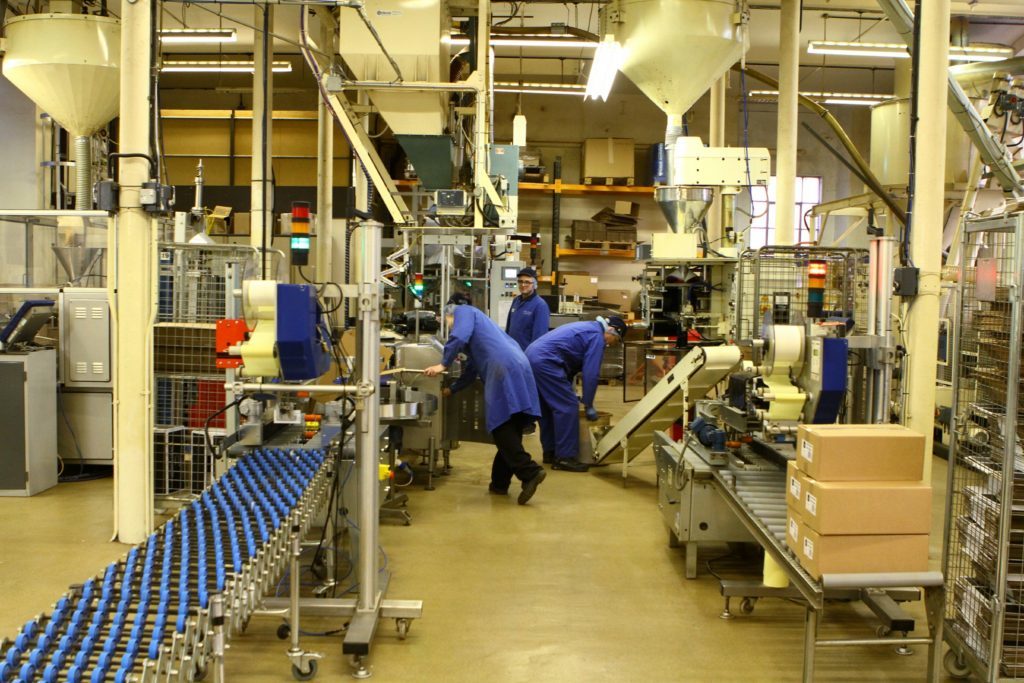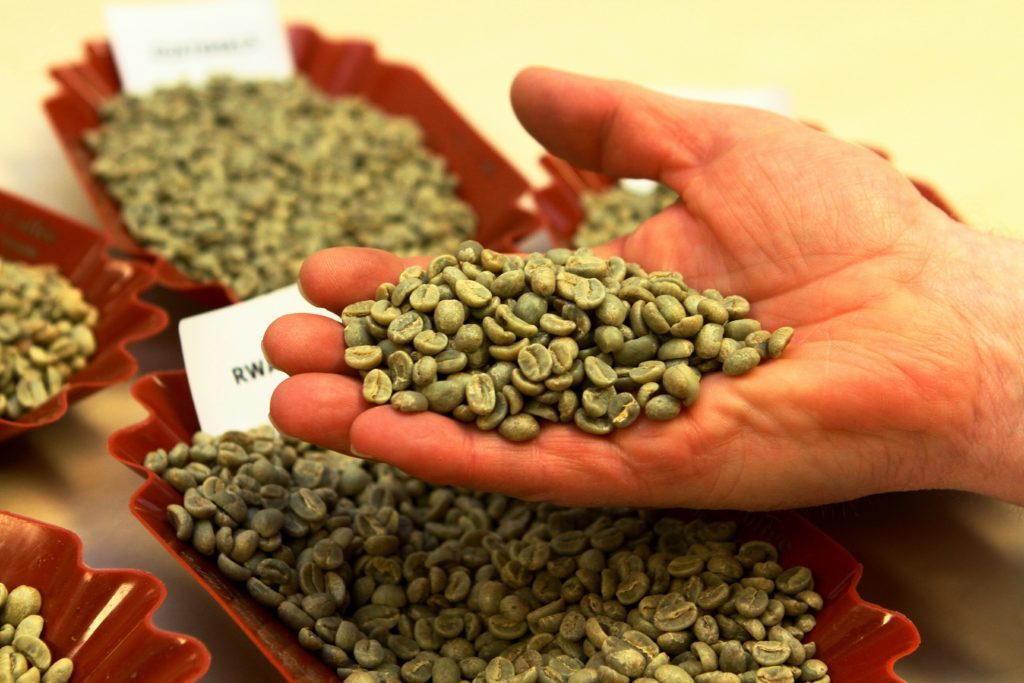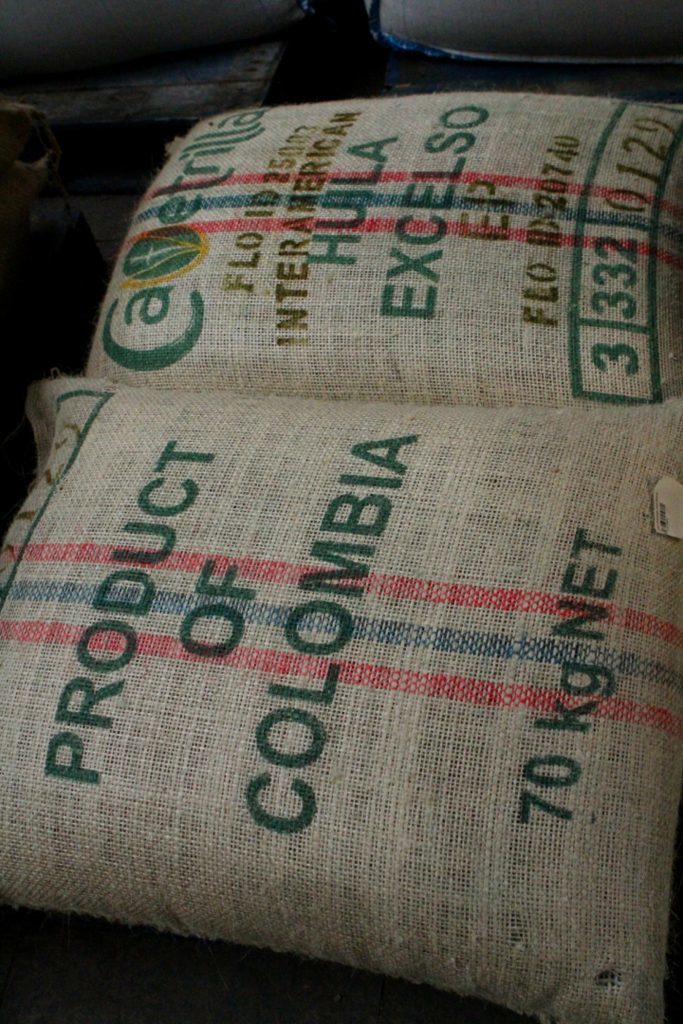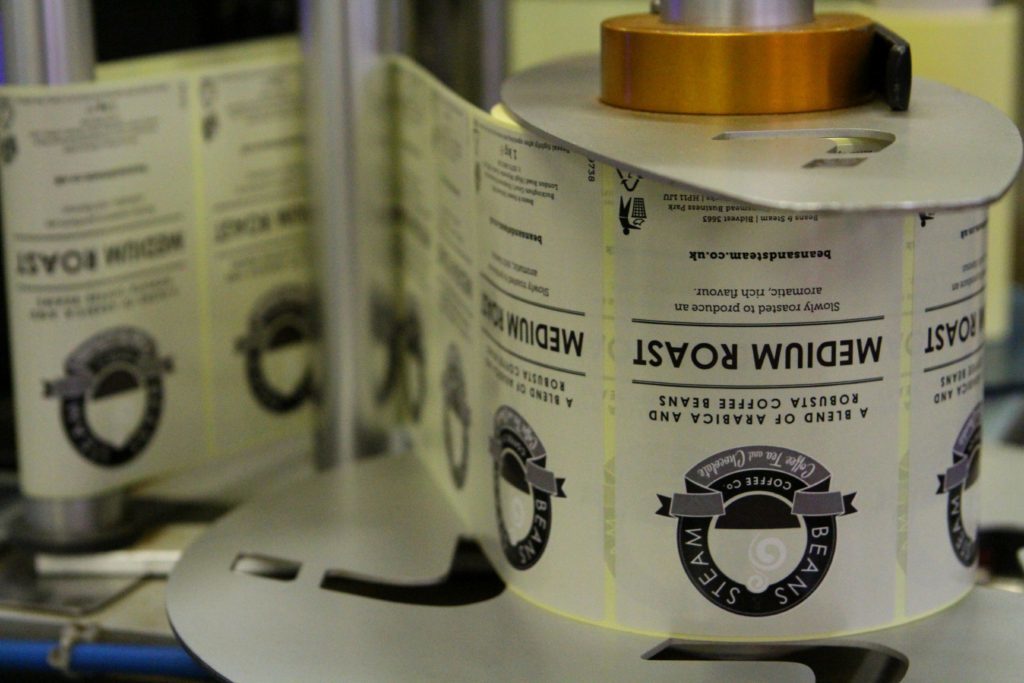A staggering 70 million cups of coffee are consumed in the UK every day. Gayle Ritchie visits the Dundee team doing their bit
You might not have heard of James Aimer, but walk past the firm’s factory in Dundee’s west end, breathe in deeply, and you’ll have a fair idea what it’s all about.
Step inside the company’s headquarters, in a converted jute mile in Milnbank Road, and the aroma of freshly roasted coffee is utterly intoxicating.
James Aimer quietly imports coffee beans from around 30 countries and blends, roasts, grinds and packages them for the “out-of-home” market – own-label branded coffees for the wholesale trade.
Managing director Eric Duncan keeps secret the identities of Aimer’s wholesale customers for “commercial reasons” – but there are many and they span the UK and northern Europe.
“The huge rise of coffee shops in the UK has really helped our business grow,” says Eric, who has worked at James Aimer since he left school.
“People are demanding better coffee; they want a good cup of freshly brewed coffee if they’re going to pay £2.50 and more.”
Eric is passionate about educating baristas; he’s had many unfortunate experiences where people have failed to make a good brew, either through laziness or ignorance.
“People need to be trained because coffee is the last thing customers will have at a restaurant,” he says.
“If they have a bad coffee, that could have a negative bearing on their experience.”
The experts at James Aimer work with clients to create bespoke taste profiles, as well as sourcing and supplying packaging materials.
While coffee beans used to be transported in hessian sacks, most are now held in one tonne plastic “bags”.
They are dumped into a silo for blending in “green” format and then conveyed to a roaster…which is when the glorious aromas are released.
“We roast 720 kilos of coffee per hour, which is 3.5 million cups a week,” says Eric.
Eric, who insists the best brewed coffee is made using a paper filter, is not a fan of quick-hit machines – “the capsules end up in landfill” – but appreciates that the innovations are opening people’s minds to fresh coffee, as opposed to instant, which accounts for 50% of coffee drunk in the UK.
“It’s a good idea for people to experiment with coffee as it’s subjective and there are so many methods of brewing it,” he says.
“I see coffee as theatre and I believe in educating people about where it came from and the processes involved in getting in from say Costa Rica or Africa to Dundee.
“All our products are sustainable and I’ve been lucky enough to visit farms in Peru, Brazil and Kenya to meet the farmers harvesting it for us.”
Last year the firm produced enough fresh coffee for 110 million cups and sufficient instant coffee for 25m cups. It also made 40 million cupfuls of tea.
James Aimer has not been a household name in coffee because it has never wanted to be.
“There are customers worldwide drinking our coffee and tea – whether in cafes, hotels, restaurants or vending machines – and who don’t know it,” says Eric.
“That’s deliberate because we’re in the wholesale market and that’s where we see our future.”
The firm was formed in Dundee in 1884 when James Aimer became one of the first importers of coffee and tea to Scotland.
It had passed into the hands of a multi-national company but 14 years ago Eric saw a greater potential in Aimer standing on its own feet.
He led a management buy-out and the firm never looked back.
By 2020 there are projected to be 27,000 coffee outlets with a turnover of £16.5bn.
That’s a lot more Americanos, cappuccinos and cafe lattes to be sold – and Eric is determined that as many of them as possible will be produced in Dundee.
For more information, www.jamesaimer.co.uk
